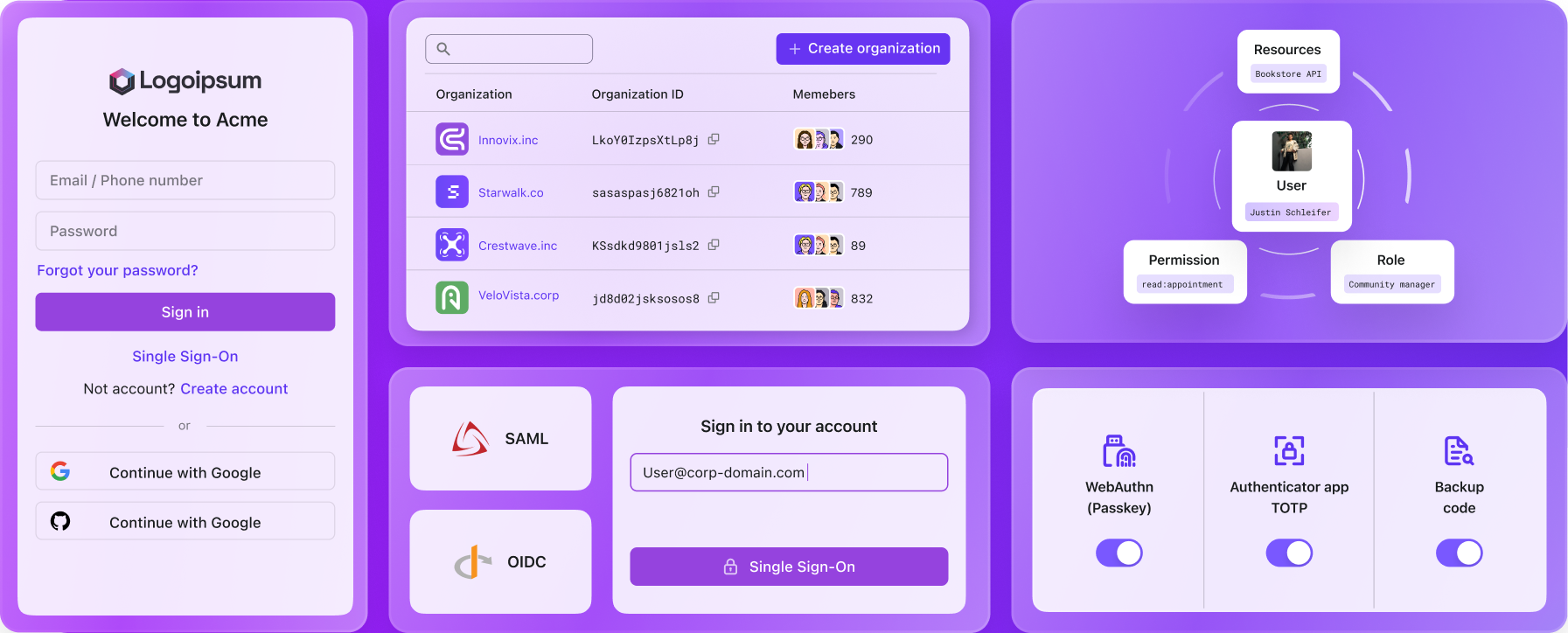Nurturing our community management
As a developer-centric product, we greatly value the feedback and contributions from our community, constantly striving to establish a healthy and self-sustainable environment. Discover our ongoing community management journey in the post.
Introduction
Logto was born and bred in the open-source community, where collaboration and developers rule the roost. We're all about making our developer experience extraordinary, which is why so many projects trust us as their go-to Customer Identity and Access Management (CIAM) system.
Logto isn't just some faceless product. We've got a big heart for community engagement. Our incredible community has contributed all sorts of awesome stuff, like funky social connectors, powerful SDKs, and mind-blowing features. We keep evolving and pushing the boundaries, always staying true to our mission of empowering developers.
Since the first launch, we have been receiving feedback and inquiries from various channels on a weekly basis. These inputs cover a wide range of topics, including product, technology, documentation, feature requests, and personalized customization. Many of these inputs have provided valuable insights and contributions. However, due to resource constraints, we have had to make careful choices in how we handle them. Our goal is to maintain a healthy and efficient community while minimizing resource investment and improving product development efficiency. To achieve this, we have been experimenting with different approaches. Here are a few strategies we have learned from our daily community works.
Set up clear rules for the community
Regardless of the types of community forums you visited, I believe you have surely encountered uncivil arguments and verbal abuse sparked by various trivial matters. They have no value and waste everyone's time. Without proper handling, they will spread like a virus, disrupting the stability of the entire community.
We are committed to building a community where individuals can freely express their opinions, while actively striving to find common ground and embracing diversity. Our collective goal is to foster an environment where valuable and helpful information is shared amongst members, empowering each other in the process.
To ensure the safety and inclusivity of our community, we have diligently crafted a comprehensive Code of Conduct. This essential document outlines the behavior expected from all participants, serving as a guiding light for promoting respectful interactions and upholding the values we hold.
Implementing a transparent set of rules and guidelines is crucial for cultivating a healthy community environment. Such measures promote inclusivity, respect, and collaboration among contributors. They establish a shared understanding of acceptable behavior and encourage constructive discussions, significantly reducing the likelihood of toxic interactions. As a community, we have a collective obligation to adhere to these rules, as they ultimately benefit everyone involved.
Detail-oriented onboarding and troubleshooting instructions
In our community, we greatly appreciate the engagement and participation of our users. We have received a wide range of inquiries, including bug reports, troubleshooting requests, and various types of help-seeking messages. However, we have noticed that a portion of these issues could have been avoided if users had thoroughly followed our get-started guide or promptly found the relevant descriptions A seamless onboarding experience plays a pivotal role in acquiring customers for a product. It sets the foundation for a positive and engaging user journey, leaving a lasting impression that can significantly impact user retention and satisfaction.
To ensure a smooth experience for all community members, we have come up with a comprehensive get-started guide. This resource provides step-by-step instructions and clear explanations to assist with installations and configurations. Taking the time to familiarize oneself with this guide can prevent potential errors and streamline the onboarding process.
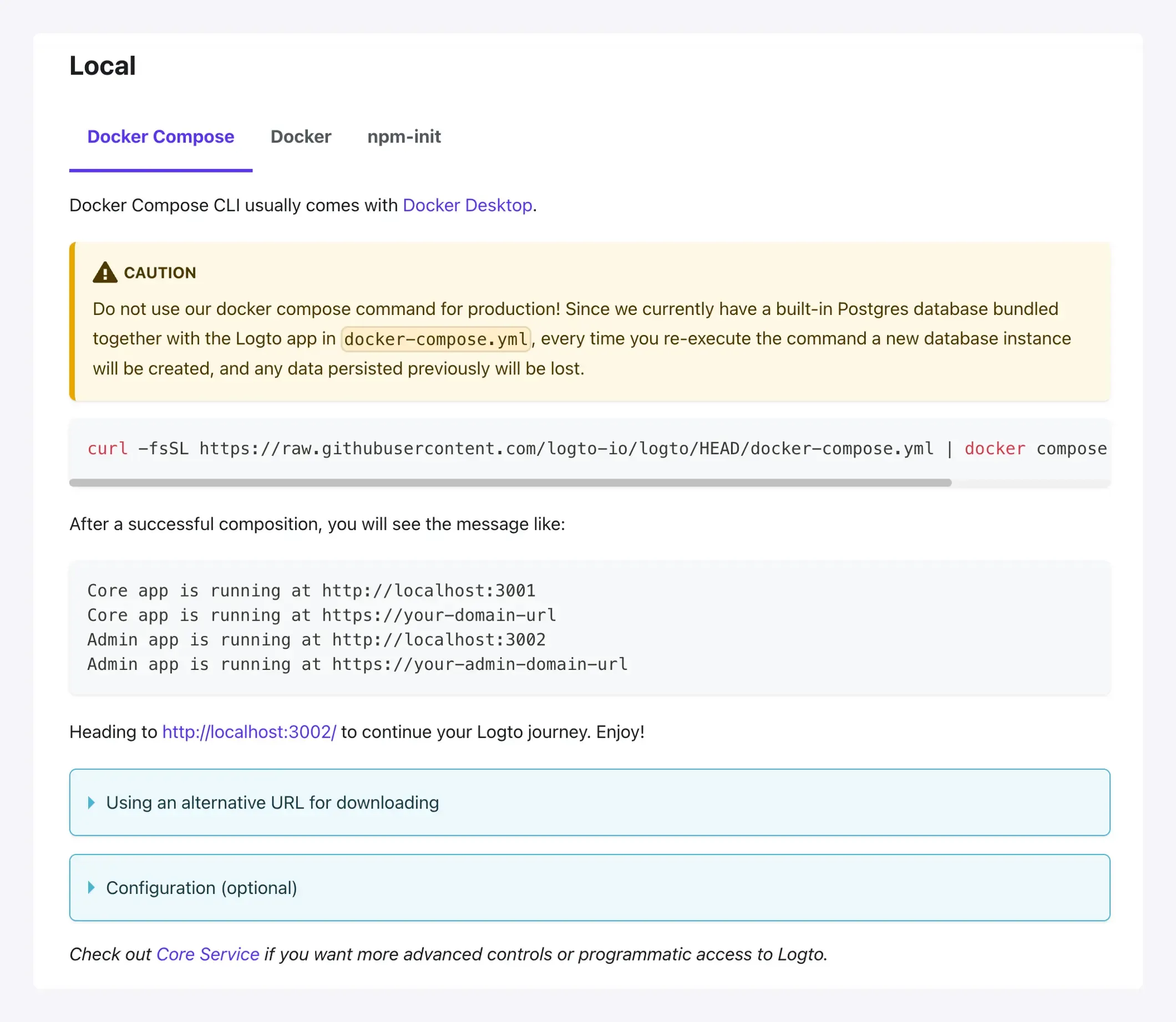
In addition, we have gathered a wealth of feedback from the community regarding common issues encountered during the onboarding process. Based on this valuable input, we have diligently compiled and organized a handy quick troubleshooting section. This resource aims to address the most frequently encountered challenges and provide immediate solutions to expedite the onboarding journey.
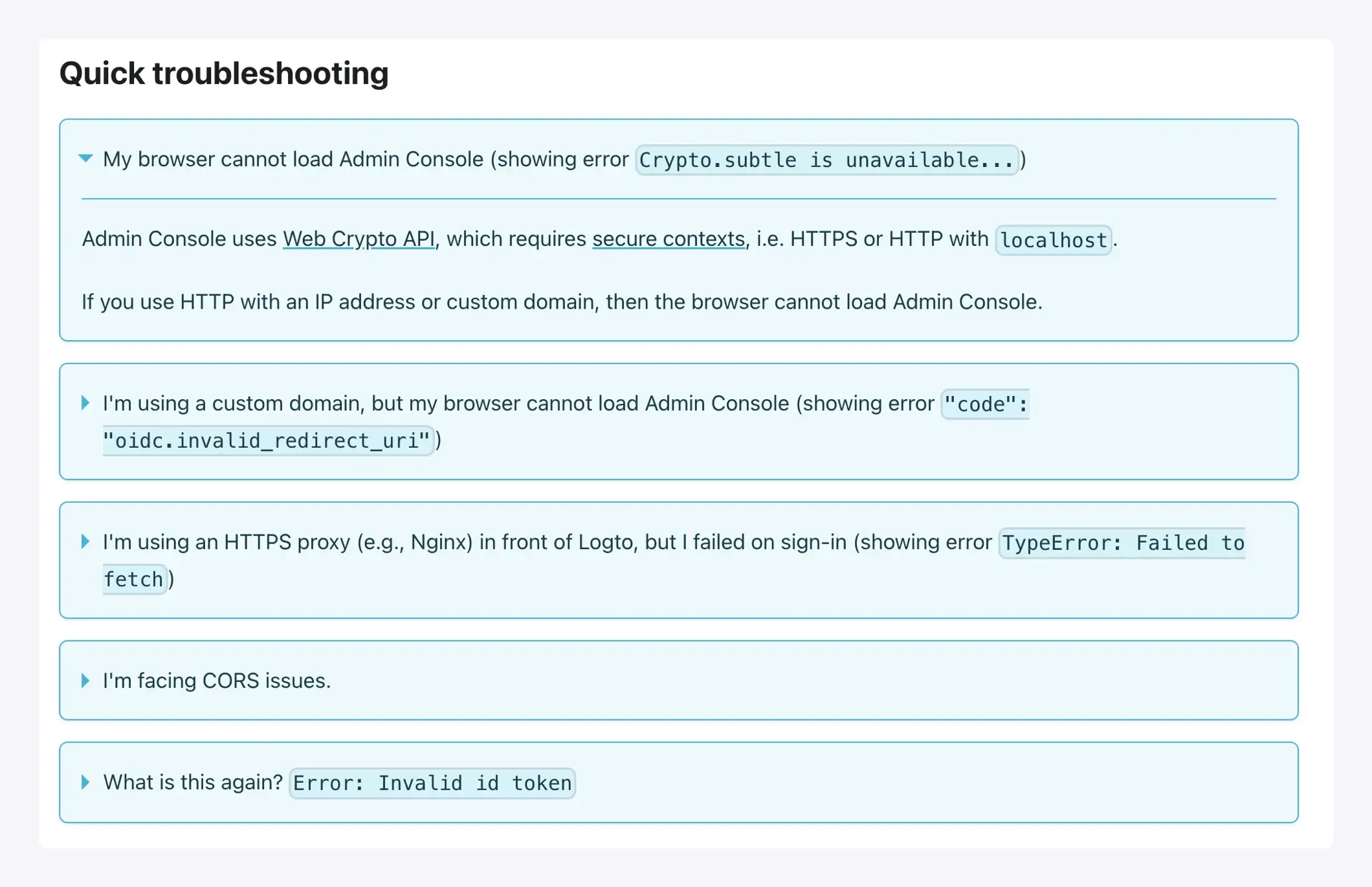
We believe that by proactively addressing common onboarding issues, we can enhance the overall user experience, minimize frustrations, and expedite the path toward the successful adoption of our product. Our commitment to continuous improvement is rooted in the valuable feedback provided by our community members, and we remain dedicated to delivering an onboarding process that is as seamless and user-friendly as possible.
A comprehensive issue template
Another significant portion of problems arises from the lack of context, often consisting of error messages or log information without sufficient details for effective troubleshooting. Most issues are tied to specific operating platforms or environment configurations. Without clear context, addressing such problems often requires lengthy communication and extensive effort to pinpoint the root cause.
This is precisely why it is crucial to establish a clear and well-structured issue template that can efficiently gather information. To facilitate efficient information gathering while avoiding lengthy data collection, we have designed and made available several concise and intuitive issue templates on GitHub. These templates are specifically tailored to streamline the process of users providing their feedback or reporting issues.

E.g. Our bug report template:
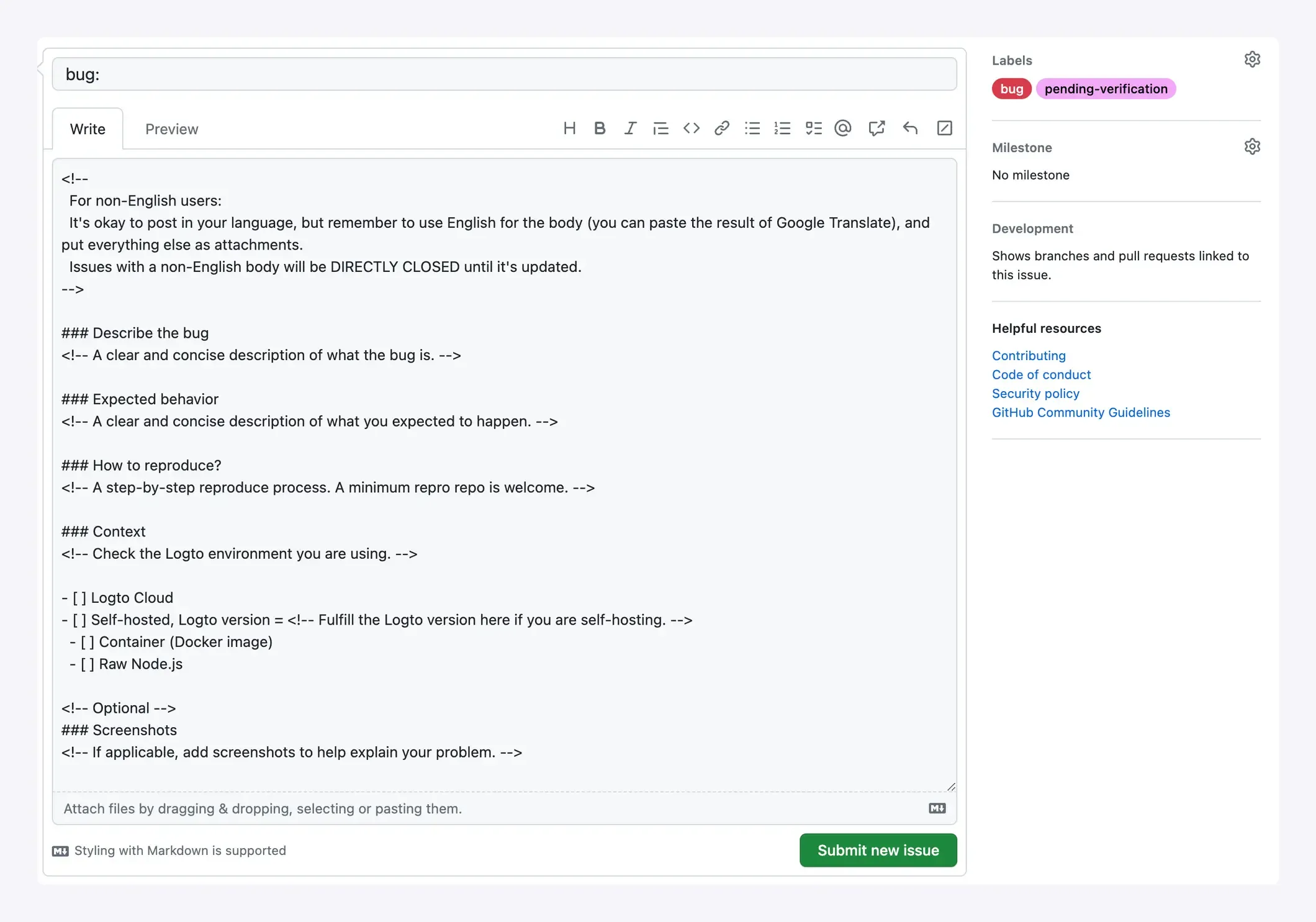
A well-designed and comprehensive issue template serves as a valuable guide, empowering users to provide essential details upfront when reporting an issue. By prompting users to include detailed error messages, necessary environment information for reproducibility, and all relevant context, we streamline the troubleshooting process, minimize back-and-forth communication, and facilitate faster and more accurate issue resolution.
Maintain a public roadmap
Logto provides various foundational functionalities of user authentication and authorization. However, different application scenarios have diverse requirements and feature modules for identity and authorization management.
E.g. Role-Based Access Control (RBAC) may be essential for a multi-service and multi-level user management system, while backchannel token exchange might play a more critical role for a gaming app.
It is a long-term iterative process and challenging to cover all aspects comprehensively. In actual production environments, we have indeed received valuable product demands from different dimensions. While many of these demands hold great value, fulfilling them often necessitates extensive research and development periods. Therefore, a clear and continuous public roadmap becomes particularly important. Believe me, managing the expectations of your user is no less crucial than those of your boss.
Before product releases, we utilize Notion to document our high-level product roadmaps, while employing Linear for detailed project management. Until we found the public roadmap of Github. It was built based on the new GitHub Projects, an out of box powerful project management tool provided by Github itself. It enables teams to organize, track, and manage their projects directly within the GitHub ecosystem. GitHub Projects integrates seamlessly with GitHub repositories, you could either create a project dashboard:
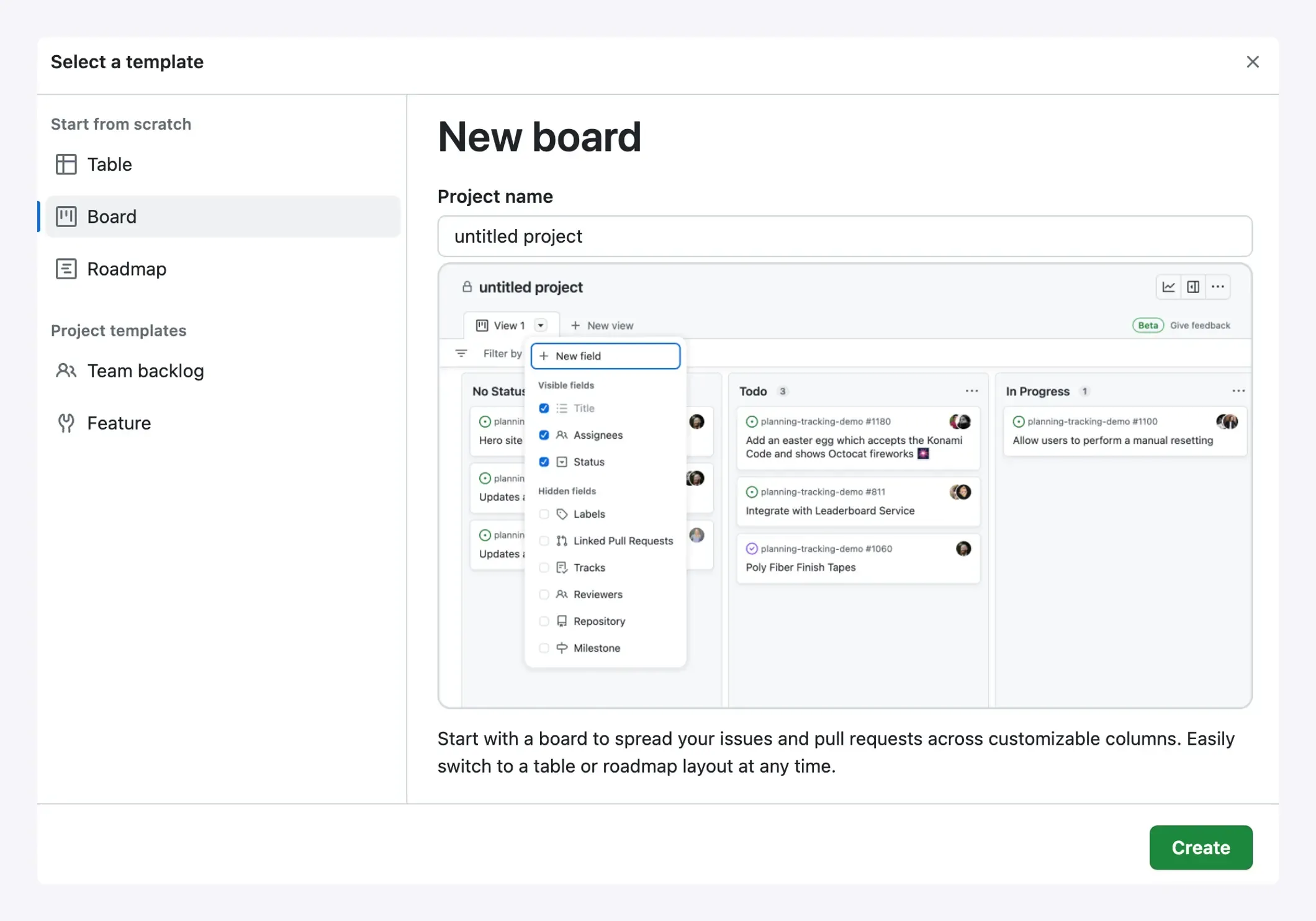
Or generate a clare roadmap gantt chart:
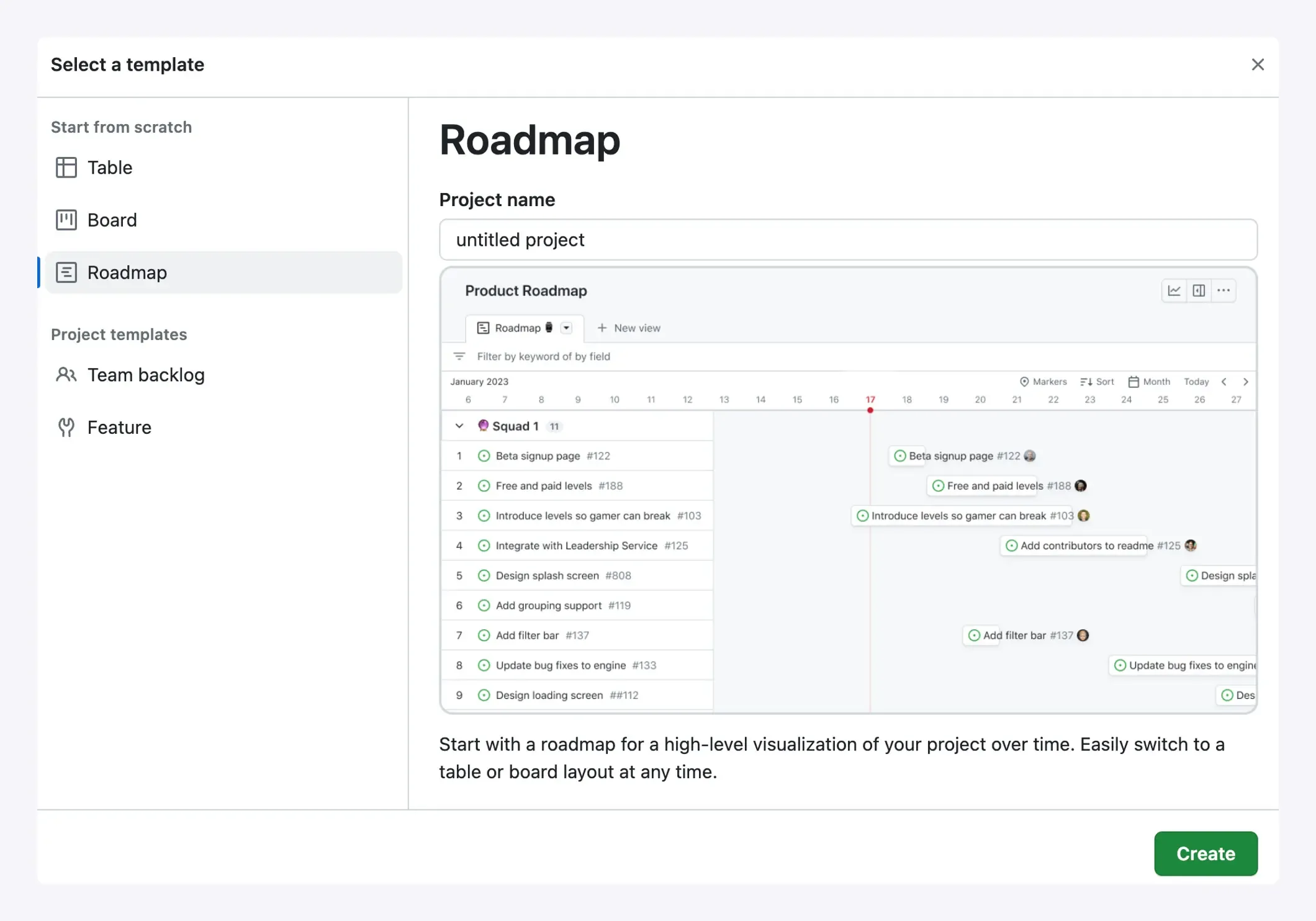
While we currently use Linear for internal project management, we are excited by the new GitHub Projects feature and have decided to migrate and publish our open-source public roadmap on GitHub.
This move enables us to better align with our community developers and provides clear expectations for Logto's feature delivery timelines. Additionally, we can directly engage with users, receiving valuable feedback. It's possible that we may fully transition in the future, utilizing GitHub Projects as our primary project management tool.
Leveraging any plugins and software effectively to enhance efficiency
As always said ”a person should learn to make the most of the tools at their disposal”.
Our team has leveraged a variety of powerful and efficient SaaS tools and plugins to enhance our workflow, not only in production and development processes but also in community management. For our primary project management, we rely on Linear, a versatile software that serves as the backbone of our operations. We have specifically created a module within Linear to cater to our community management needs. This module encompasses tasks such as content sharing management, community feedback and feature requests, bug tracking, and integration of third-party frameworks.
To ensure instant responses to user feedback and requirements, we have integrated a Linear bot on Discord. This enables our on-call team members to address community issues and demands in real-time. For time-consuming issues, we consolidate them and assign them to individuals who are most familiar with the relevant business area. Additionally, we hold weekly meetings to collectively discuss and address new product demands and any accumulated issues from the past week.
By adopting this approach, we not only guarantee timely responses to users but also optimize the time spent on community interactions for each team member. Simultaneously, we minimize the risk of missing out on any valuable inquiries or feedback.
Community are not just customer support
Our community has brought us not only valuable insights and code contributions but, more importantly, it has turned into a self-sustaining and growth-oriented environment.
We have setup a dedicated showcase channel where members can share their projects utilizing Logto. Furthermore, we have a vibrant user base in our questions channel who actively assist newcomers, engage in discussions on intriguing technical topics, and provide guidance. This holds immense significance for our team, especially during our early stages of development. This represents the true value of our community — an ecosystem that not only enhances our community support efficiency but also allows us to harvest invaluable ideas that shape our products to the fullest extent.
Furthermore, we have implemented regular community user interviews, conducting proactive online chat sessions with willing participants. Through these ongoing conversations, we consistently learn and gather valuable customer feedback. As a result, we have forged numerous fruitful partnerships with exceptional business entities.
In a recent Discord interaction, we had the pleasure of connecting with a company focused on developing ChatGPT plugins. Their pioneering use cases exposed us to an unexplored realm, including Logto’s authorization integration for ChatGPT plugins. Through collaborative communication and joint efforts, we not only addressed their specific challenges but also expanded Logto's capabilities to cater to the increasing demand for AI plugin authorization in the future.
As we serve our community, we have also received numerous contributions from community members. These contributions include expanding our SDK to support additional frameworks like Flutter and Remix. We have also seen the integration of popular social connectors from different countries and regions, such as Feishu, Azure AD, Discord, Kakao, and many more. These valuable contributions enhance the versatility and global reach of our services, enabling users from various backgrounds to connect and engage with our platform.
This is precisely why Logto has been dedicated to building and nurturing our community since its launch. As our business grows, we increasingly prioritize our community users. We also aspire to have more developers actively contribute to Logto, just as we have been doing.

